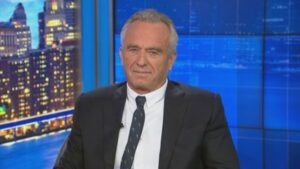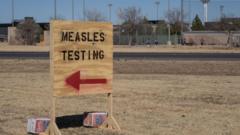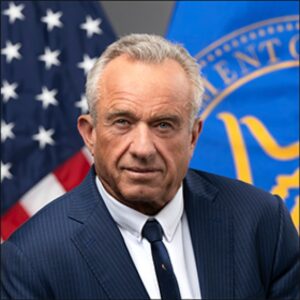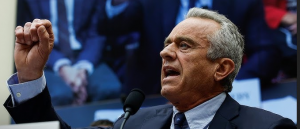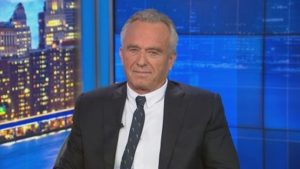Academics named in a US government report on children's chronic health issues are disputing the existence of studies they allegedly authored. The report, issued by Health Secretary Robert F. Kennedy Jr., has been amended after claims of fabricated sources emerged. Critics argue that the citation practices undermine the report's credibility.
US Government Report on Children's Health Under Fire for Fabricated Sources

US Government Report on Children's Health Under Fire for Fabricated Sources
A controversial US health report, led by Health Secretary Robert F. Kennedy Jr., has been criticized for citing non-existent studies, prompting concerns from academics and policymakers alike.
A recent US government report concerning the health of children has come under fire for citing studies that do not exist, as confirmed by academics misidentified as the authors of those studies. Initially released on May 22, the report aimed to outline the causes of what it termed the "chronic disease crisis" affecting American children. However, after scrutiny by the digital platform NOTUS, it was revealed that seven of the sources referenced in the report were fabricated.
White House press secretary Karoline Leavitt attributed the issues to "formatting errors," asserting that the forthcoming updates would not diminish the report's overall findings. At the helm of the Health and Human Services Department is Secretary Robert F. Kennedy Jr., known for endorsing previously disproven theories linking vaccines to autism. This report is associated with President Donald Trump's earlier executive order to assess the ongoing public health challenges facing youth in the U.S.
Produced by the Make America Healthy Again Commission, the document concluded that factors such as poor nutrition, environmental pollutants, high levels of stress, lack of adequate physical activity, and "overmedicalization" could play significant roles in the rise of chronic illnesses among children. However, researchers highlighted their names as authors of studies referenced in the report, which they unanimously claimed they did not write, nor do the studies themselves exist.
Guohua Li, a professor at Columbia University, spoke with Agence France-Presse, labeling the attribution as "totally fabricated" and unfamiliar with the co-author listed alongside him. Noah Kreski, another Columbia researcher mentioned, echoed this concern, stating the supposed study "doesn't appear to exist at all." Additionally, epidemiology authority Katherine Keyes expressed alarm about such citations in research, emphasizing their critical role in establishing scientific validity.
Moreover, claims relating to a study about the marketing of psychotropic medications aimed at youth were similarly disclaimed by the associated university. In response, the Democratic National Committee accused RFK Jr.’s department of using fictitious citations to support its health policy stances, describing the report as rife with numerous errors, including broken links and misrepresented conclusions.
Since being sworn in as Secretary of Health in February, RFK Jr. has initiated substantial layoffs within the department and proposed the implementation of placebo trials for all new vaccines amid ongoing controversy.


